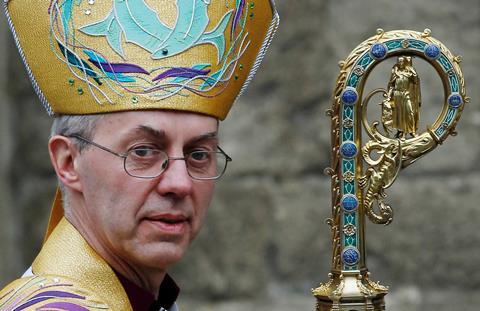The Archbishop of Canterbury had to step down. But it’s what happens next that will decide the fate of the Church of England, says abuse survivor Samantha Smith

Most Rev Justin Welby has stirred controversy throughout his term as Archbishop of Canterbury, from drawing criticism over progressive policy initiatives to the Church of England’s glacial paced return to in-person services after the Covid-19 pandemic.
However, the various achievements – and controversies – of his tenure will likely be overshadowed by his last 120 hours in office. A week may feel rather fast to end the career of the foremost clergyman in England but, make no mistake, Welby’s resignation was not a noble act of accountability. It was an overdue admission of his moral and organisational failure.
Welby’s resignation should be a sobering reminder of the impact of delayed justice for victims of abuse
The full extent of John Smyth’s horrific abuse of young boys in the CofE may only have come to light last week, but knowledge of his crimes had been shared – and concealed – within the upper echelons of church leadership for over a decade.
Welby had barely posted his name on the door of the archbishop’s office before he was made aware of the allegations against Smyth.
Smyth was accused of attacking dozens of boys, including those he met at Christian camps through his position as a senior officer of a Christian charity in the UK, and across several African nations during the 1970s and 1980s.
Unknowing incompetence
A damning review published just days ago revealed that the abuse was disclosed to Welby and known “at the highest level” of the Church of England as early as 2013. Yet nothing was reported to authorities and no real efforts were made to seek justice for Smyth’s victims.
For years, Welby knew of the brutality perpetrated against innocent children. He had the power and opportunity to correct historic injustices and demand justice for the victims. He would have seen the corruption and negligence perpetrated by those like him as the Catholic Church sexual abuse scandal sent shockwaves through the Christian world in the early 2000s.
Still, he did nothing.
Welby’s defence of unknowing incompetence – that he trusted others to resolve the issue and report the crimes – demonstrates the same laziness and wilful neglect replicated across other abuse scandals in the UK and globally. It is easier to turn a blind eye to victims’ pain than to pursue the perpetrators of these heinous crimes.
Structural failure
Why? Because to acknowledge that Smyth was able to get away with abusing little boys for decades without intervention is to admit that the entire protective mechanism of the Church of England failed. Like so many before him, Welby prioritised image and reputation over his protective duties and the Church’s scriptural mission.
Ephesians 5:11 tells us: “Have nothing to do with the fruitless deeds of darkness, but rather expose them.” But Welby and his compatriots did the exact opposite: betraying the divine offices and their duty to serve in accordance with God’s teachings by concealing the evil deeds being carried out within his ranks.
The damage Smyth inflicted - beatings, emotional manipulation and horrific physical abuse - was profound, but what is perhaps more appalling is the culture of indifference and self-preservation that enabled him to die a free man.
Welby may not have lifted a hand against those boys himself. However, it is his failure to report them that forced his victims to suffer in silence while the institution that should have protected them prioritised their own reputation. He may not have acted alone in sweeping this scandal under the rug, but the reality is that he was the final frontier and needed to bear the consequences of his institution’s systemic failure.
What next?
Welby’s departure from office, though necessary and inevitable, has rendered the Church of England rudderless in the eye of the storm. Its reputation is in shambles, the black hole of public opinion is widening daily, and there appears to be a growing consensus among clergy, congregants and the remaining leadership that the Church will face its reckoning day if change does not come fast enough.
For decades, both the Anglican and Catholic churches have promised institutional reform and improved safeguarding. However, as the Smyth scandal has revealed, when the choice is between reputational preservation and plain justice, the Church of England lacks the will or courage to act.
It is easier to turn a blind eye to victims’ pain than to pursue the perpetrators of these heinous crimes
Welby’s departure may bring hope for an end to this chapter of inaction, but without genuine remorse and a commitment to hold its own to account, his resignation risks becoming little more than an empty platitude. The Bishop of Newcastle’s recent comments highlight a painful truth that the Church must acknowledge if it is to have any hope of survival: without complete structural reform, it can no longer claim the divine authority to lead on issues of morality, or shepherd its followers to expose darkness and confront mortal evils.
The road ahead for the CofE is daunting, and Welby’s resignation should be a sobering reminder of the cost of complacency and the impact of delayed justice on victims of abuse.
Whoever assumes the office of Archbishop of Canterbury next must not follow in the footsteps of their predecessors or view themselves as beyond moral reproach. If the CofE is to regain even a fraction of the trust it has lost, there needs to be a genuine desire for change. Most importantly, they cannot be allowed to continue marking their own homework where progress and reform is concerned.






































No comments yet